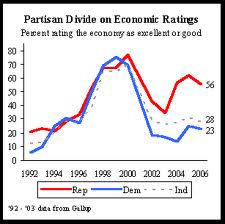 And a lot of these things have happened over the last 18 months within the Euro Zone and I think we should credit that but I think more needs to be done. I think the Euro Zone understands that and I think it needs to happen in the next few weeks. Now the two things I would focus on are first of all the creation of this firewall. It’s been much talked about but I think that is now a key to unlocking further confidence.
And a lot of these things have happened over the last 18 months within the Euro Zone and I think we should credit that but I think more needs to be done. I think the Euro Zone understands that and I think it needs to happen in the next few weeks. Now the two things I would focus on are first of all the creation of this firewall. It’s been much talked about but I think that is now a key to unlocking further confidence.
The second thing which I am not sure has been mentioned yet is Greece. I mean we are still, at the beginning of 2012, talking about Greece again. I think it’s sign that this problem has not been dealt with, that this is the…the danger here is that the tail wags the dog throughout this crisis. In other words, the inability to do the specific problems in the periphery causes shock waves across the whole European economy and the world economy and concluding the deal that will lead to a more sustainable situation in Greece I think is actually fundamental to stability in the Euro Zone.
But I think those things can be done and I think they can be done over the next couple of months. The second thing I think that needs to happen is, I think, policy makers need to get a greater grip on the deleveraging process. Now part of that is the deleveraging of public sector debt and obviously, talking my own book, I think we’ve demonstrated in the UK and even if you have a very high budget deficit and we have one of the highest in the world, a credible plan to deal with it can command market confidence, give you very low rates in the market and provide a platform of stability in an otherwise very volatile time.
I think the other thing that we all need to better understand is the deleveraging happening in the financial system, an inevitable consequence of a financial crisis than a balance sheet recession. But I think that the point that Martin made is something that I would like to see more tension to from policy makers over the coming weeks which is the vulcanization of European Finance which has happened as a number of institutions and individuals have taken actions to protect themselves from the terror risk of things going wrong in the Euro and what the impact it will be on the European economy and how that can be unwound which I think is very important.
Then I think one of the things we can do is also provide a regulatory certainty this year. Of course it’s inevitable after a big banking crash that you consider how to avoid these things happening again and suddenly in Britain, and maybe we can come on and talk about that, we have done a lot of work in looking at how we can better protect our banking system that Martin himself was involved in. But we now need to move to a point where we tell everyone what we’re going to do, get clarity on the rules, I would include the United States in this and again provide some stability which will provide a platform for investment.
The final point I will make is that I think we need to restore some confidence in the ability of the multilateral organizations to work effectively. We can come on and talk about IMF resources and I think there is a case for increasing IMF resources and that would also be a way of demonstrating that the world wants to help together solve the world’s problems. But I think that’s also an important task ahead for the FSB and Mark this year. And on trade, which I continue to think is one of the most disappointing features at the moment of the world, that we have not been able to pick up the Free Trade Agreement that we know would act as a significant economic stimulus, not just for the real benefits it will bring but also because it would demonstrate that we are able to take collective action for the common good.
I think in the absence of that, I think it is actually positive to see more regional trade agreements in the European context, a deepening of the single market and bilateral agreements in the case of Europe, bilateral agreements between the European Union and for example, India. Which I think would again demonstrate that we are not retreating into protectionism but actually moving forward and opening up markets. All those three things are within the hands of policy makers. They are not things that will require acts of God and guidable forces of nature to deliver. These are all things that people such as the people in this room, can get together this year and deliver.
Davos 2012 – Global Economic Outlook Pt 5
